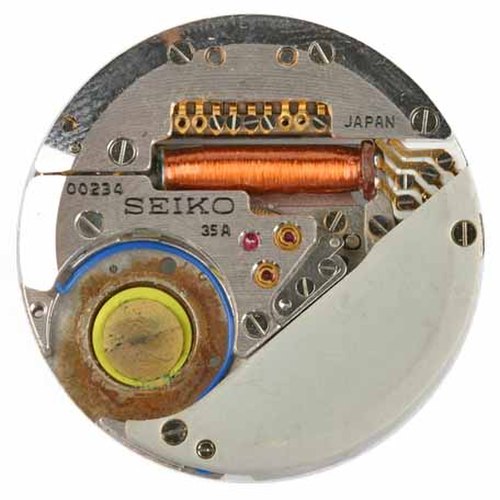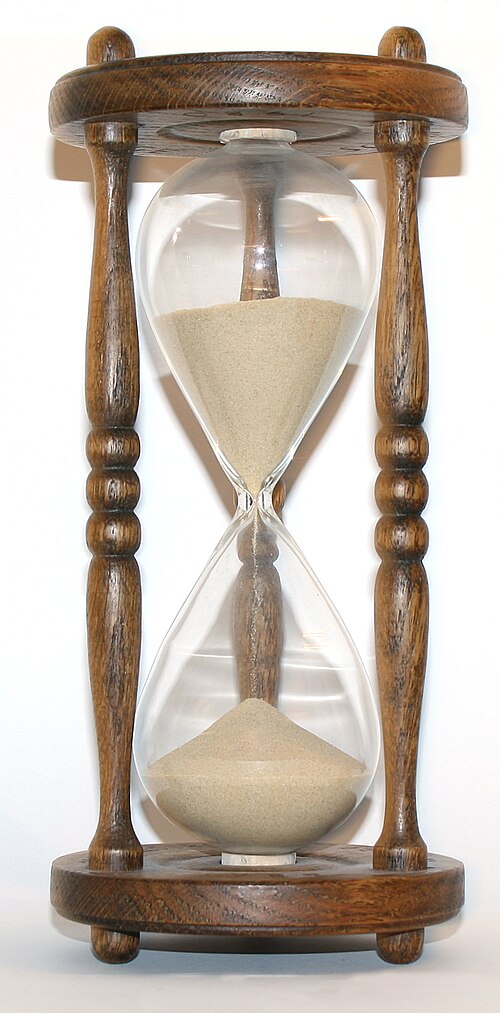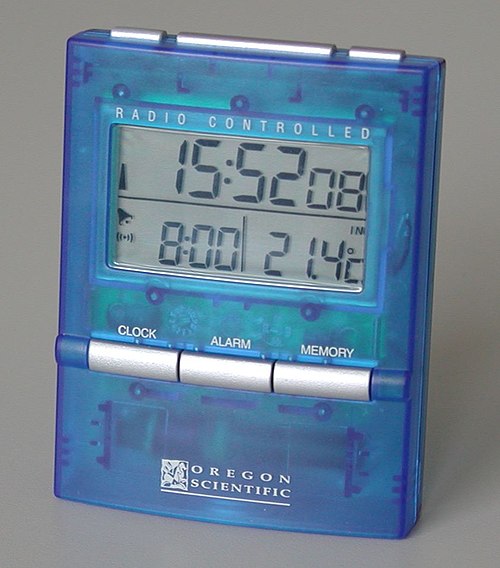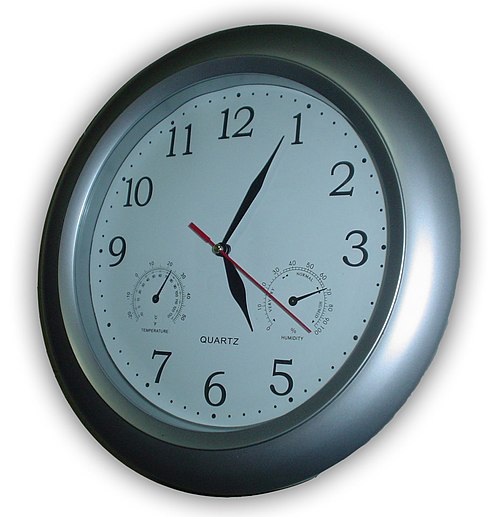Watchnoun
A portable or wearable timepiece.
Watchnoun
The act of guarding and observing someone or something.
Watchnoun
A particular time period when guarding is kept.
Watchnoun
A person or group of people who guard.
Watchnoun
The post or office of a watchman; also, the place where a watchman is posted, or where a guard is kept.
Watchnoun
(nautical) A group of sailors and officers aboard a ship or shore station with a common period of duty: starboard watch, port watch.
Watchnoun
(nautical) A period of time on duty, usually four hours in length; the officers and crew who tend the working of a vessel during the same watch. (FM 55–501).
Watchnoun
The act of seeing, or viewing, for a period of time.
Watchverb
(transitive) To look at, see, or view for a period of time.
Watchverb
(transitive) To observe over a period of time; to notice or pay attention.
Watchverb
(transitive) To mind, attend, or guard.
Watchverb
(transitive) To be wary or cautious of.
Watchverb
(transitive) To attend to dangers to or regarding.
Watchverb
(intransitive) To remain awake with a sick or dying person; to maintain a vigil.
Watchverb
(intransitive) To be vigilant or on one's guard.
Watchverb
(intransitive) To act as a lookout.
Watchverb
To serve the purpose of a watchman by floating properly in its place.
Watchverb
To be awake.
Watchnoun
The act of watching; forbearance of sleep; vigil; wakeful, vigilant, or constantly observant attention; close observation; guard; preservative or preventive vigilance; formerly, a watching or guarding by night.
Watchnoun
One who watches, or those who watch; a watchman, or a body of watchmen; a sentry; a guard.
Watchnoun
The post or office of a watchman; also, the place where a watchman is posted, or where a guard is kept.
Watchnoun
The period of the night during which a person does duty as a sentinel, or guard; the time from the placing of a sentinel till his relief; hence, a division of the night.
Watchnoun
A small timepiece, or chronometer, to be carried about the person, the machinery of which is moved by a spring.
Watchnoun
An allotted portion of time, usually four hour for standing watch, or being on deck ready for duty. Cf. Dogwatch.
Watchverb
To be awake; to be or continue without sleep; to wake; to keep vigil.
Watchverb
To be attentive or vigilant; to give heed; to be on the lookout; to keep guard; to act as sentinel.
Watchverb
To be expectant; to look with expectation; to wait; to seek opportunity.
Watchverb
To remain awake with any one as nurse or attendant; to attend on the sick during the night; as, to watch with a man in a fever.
Watchverb
To serve the purpose of a watchman by floating properly in its place; - said of a buoy.
Watchverb
To give heed to; to observe the actions or motions of, for any purpose; to keep in view; not to lose from sight and observation; as, to watch the progress of a bill in the legislature.
Watchverb
To tend; to guard; to have in keeping.
Watchnoun
a small portable timepiece
Watchnoun
a period of time (4 or 2 hours) during which some of a ship's crew are on duty
Watchnoun
a purposeful surveillance to guard or observe
Watchnoun
the period during which someone (especially a guard) is on duty
Watchnoun
a person employed to watch for something to happen
Watchnoun
a devotional watch (especially on the eve of a religious festival)
Watchverb
look attentively;
Watchverb
follow with the eyes or the mind;
Watchverb
see or watch;
Watchverb
observe with attention;
Watchverb
be vigilant, be on the lookout, be on one's guard, be careful;
Watchverb
observe or determine by looking;
Watchverb
find out, learn, or determine with certainty, usually by making an inquiry or other effort;
Watchverb
look at or observe attentively over a period of time
Watchverb
keep under careful, protective, or secret observation
Watchverb
observe and guard in a protective way
Watchverb
follow closely or maintain an interest in
Watchverb
exercise care, caution, or restraint about
Watchverb
look out or be on the alert for
Watchverb
be careful
Watchverb
be careful (used as a warning or threat)
Watchverb
remain awake for the purpose of religious observance
Watchnoun
a small timepiece worn typically on a strap on one's wrist
Watchnoun
an act or instance of carefully observing someone or something over a period of time
Watchnoun
a period during which a person is stationed to look out for danger or trouble, typically at night
Watchnoun
a fixed period of duty on a ship, usually lasting four hours
Watchnoun
the officers and crew on duty during a watch.
Watchnoun
a shift worked by firefighters or police officers
Watchnoun
a watchman or group of watchmen who patrolled and guarded the streets of a town before the introduction of the police force
Watchnoun
a film or programme considered in terms of its appeal to the public
Watchnoun
a flock of nightingales
Watch
A watch is a portable timepiece intended to be carried or worn by a person. It is designed to keep a consistent movement despite the motions caused by the person's activities.
Clocknoun
An instrument used to measure or keep track of time; a non-portable timepiece.
Clocknoun
(British) The odometer of a motor vehicle.
Clocknoun
(electronics) An electrical signal that synchronizes timing among digital circuits of semiconductor chips or modules.
Clocknoun
The seed head of a dandelion.
Clocknoun
A time clock.
Clocknoun
A CPU clock cycle, or T-state.
Clocknoun
A pattern near the heel of a sock or stocking.
Clockverb
(transitive) To measure the duration of.
Clockverb
(transitive) To measure the speed of.
Clockverb
To hit (someone) heavily.
Clockverb
(slang) To take notice of; to realise; to recognize someone or something
Clockverb
To falsify the reading of the odometer of a vehicle.
Clockverb
To beat a video game.
Clockverb
(transitive) To ornament (e.g. the side of a stocking) with figured work.
Clockverb
To make the sound of a hen; to cluck.
Clockverb
To hatch.
Clocknoun
A machine for measuring time, indicating the hour and other divisions; in ordinary mechanical clocks for domestic or office use the time is indicated on a typically circular face or dial plate containing two hands, pointing to numbers engraved on the periphery of the face, thus showing the hours and minutes. The works of a mechanical clock are moved by a weight or a spring, and it is often so constructed as to tell the hour by the stroke of a hammer on a bell. In electrical or electronic clocks, the time may be indicated, as on a mechanical clock, by hands, but may also be indicated by direct digital readout, with the hours and minutes in normal Arabic numerals. The readout using hands is often called analog to distinguish it from the digital readout. Some clocks also indicate the seconds. Clocks are not adapted, like the watch, to be carried on the person. Specialized clocks, such as atomic clocks, may be constructed on different principles, and may have a very high precision for use in scientific observations.
Clocknoun
A watch, esp. one that strikes.
Clocknoun
The striking of a clock.
Clocknoun
A figure or figured work on the ankle or side of a stocking.
Clocknoun
A large beetle, esp. the European dung beetle (Scarabæus stercorarius).
Clockverb
To ornament with figured work, as the side of a stocking.
Clockverb
To call, as a hen. See Cluck.
Clocknoun
a timepiece that shows the time of day
Clockverb
measure the time or duration of an event or action or the person who performs an action in a certain period of time;
Clock
A clock is a device used to measure, verify, keep, and indicate time. The clock is one of the oldest human inventions, meeting the need to measure intervals of time shorter than the natural units: the day, the lunar month, and the year.





























































